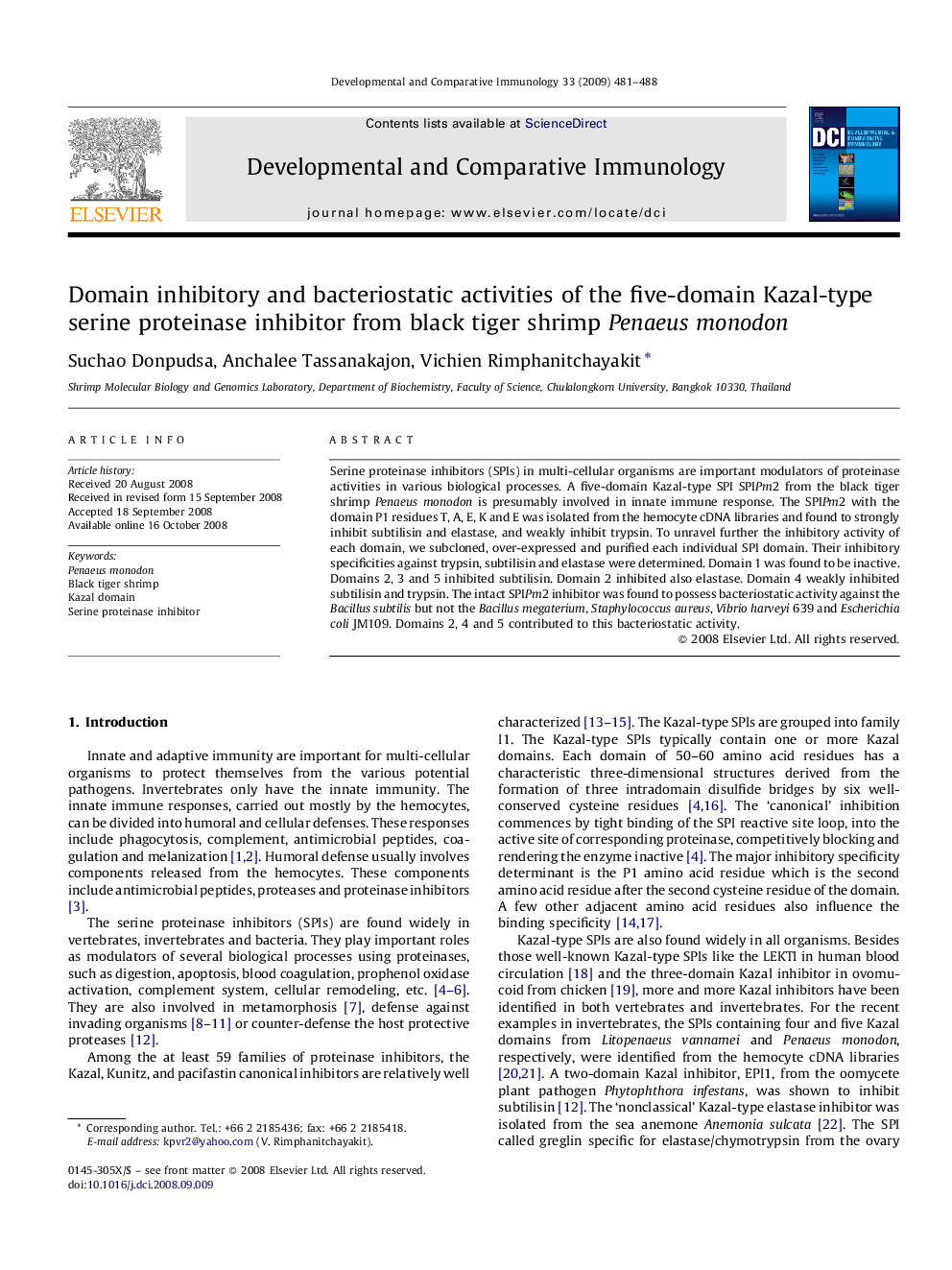| Article ID | Journal | Published Year | Pages | File Type |
|---|---|---|---|---|
| 2429732 | Developmental & Comparative Immunology | 2009 | 8 Pages |
Serine proteinase inhibitors (SPIs) in multi-cellular organisms are important modulators of proteinase activities in various biological processes. A five-domain Kazal-type SPI SPIPm2 from the black tiger shrimp Penaeus monodon is presumably involved in innate immune response. The SPIPm2 with the domain P1 residues T, A, E, K and E was isolated from the hemocyte cDNA libraries and found to strongly inhibit subtilisin and elastase, and weakly inhibit trypsin. To unravel further the inhibitory activity of each domain, we subcloned, over-expressed and purified each individual SPI domain. Their inhibitory specificities against trypsin, subtilisin and elastase were determined. Domain 1 was found to be inactive. Domains 2, 3 and 5 inhibited subtilisin. Domain 2 inhibited also elastase. Domain 4 weakly inhibited subtilisin and trypsin. The intact SPIPm2 inhibitor was found to possess bacteriostatic activity against the Bacillus subtilis but not the Bacillus megaterium, Staphylococcus aureus, Vibrio harveyi 639 and Escherichia coli JM109. Domains 2, 4 and 5 contributed to this bacteriostatic activity.
